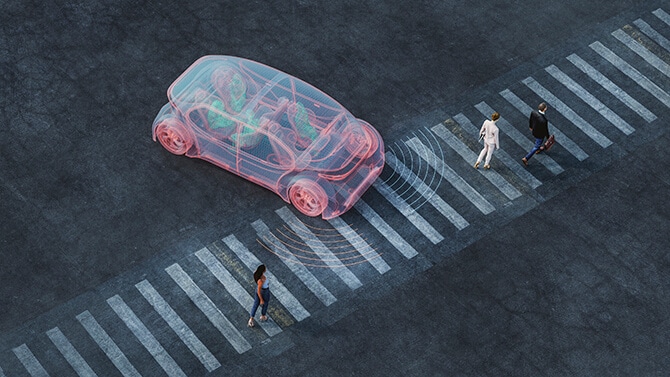AI usage can make mobility safer, more efficient, more convenient and more environmentally friendly – providing a wide variety of benefits to mobility users.
Autonomous and connected vehicles
According to statistics by the German Federal Statistical Office, human error is responsible for 88.5% of all fatal road traffic accidents in Germany. Autonomous and connected vehicles have a huge potential to improve road safety in this context. They can also help make mobility more inclusive and more convenient.
Intelligent and connected infrastructure
Digital transport infrastructure offers many new possibilities – such as “intelligent” car parks to make parking space search more efficient, or smart road infrastructure to continuously evaluate traffic flow and incidents against set KPIs. Data recorded by such infrastructure allows traffic jams to be avoided and traffic flows optimised – for example, by implementing automatic route diversions.
Intelligent vehicle management
Intelligent systems can help make management of public transport or logistics fleets more efficient and environmentally friendly. There are also benefits for private users, such as intelligent charging systems enabling electric vehicle owners to charge their vehicles outside of peak demand – this saves money while also reducing pressure on the electricity grid.
Intelligent services
Intelligent services delivered through apps offer users a completely new and even more convenient experience. They can enable optimised multimodal transport, taking individual preferences into account.











